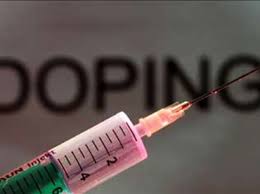By Andrew Warshaw
September 21 – UEFA has been quick to play down reports in Germany and England that it has unearthed a potentially serious doping issue in its competitions.
A study commissioned by European football’s governing body revealed higher than expected levels of testosterone that in some cases could potentially point towards performance-enhancing drug-taking, according to the German broadcaster ARD and the Sunday Times newspaper.
However, UEFA said the study, reportedly conducted by 12 European anti-doping laboratories, did not provide “any scientific evidence” of possible deliberate doping.
Researchers analysed 4,195 urine samples from 879 footballers, mainly involved in the Champions League, Europa League and two European Championships between 2008-13. The result was that that 68 players, or 7.7% of those tested, recorded “atypical” levels of testosterone
News of the study comes at a sensitive time given the doping scandal that has rocked athletics but UEFA says nothing conclusive can be drawn and said no players have faced sanctions because the samples were provided anonymously and no ‘B’ samples were taken.
“Further to media reports, UEFAwould like to clarify a number of points regarding the report that it commissioned and contributed to, which was published earlier this month,” a UEFA statement read.
“This study does not present any scientific evidence of potential doping in football especially due to the presence of confounding factors, the lack of standardisation procedures among the 12 laboratories, and the quantification of steroid profiles when the samples were collected.
“Furthermore, there was an inability to perform a second analysis [B sample] as required now by the WADA international standards for laboratories.
“The study simply shows that the introduction of steroidal biological passport in football would be beneficial by offering further analysis possibilities in case of atypical test results. UEFA has had a very thorough anti-doping programme for many years with over 2,000 tests a year and only two occurrence of positive tests, both for recreational drugs, which proves that doping in football is extremely rare.
“UEFA has now implemented a new steroid profiling programme which has come into operation at the start of the 2015/16 season. The programme will boost the already strong deterrent effect of UEFA’s testing programme, as it will help better detect the effects of doping over time, thereby complementing existing direct anti-doping testing.”
Contact the writer of this story at moc.l1745225890labto1745225890ofdlr1745225890owedi1745225890sni@w1745225890ahsra1745225890w.wer1745225890dna1745225890

